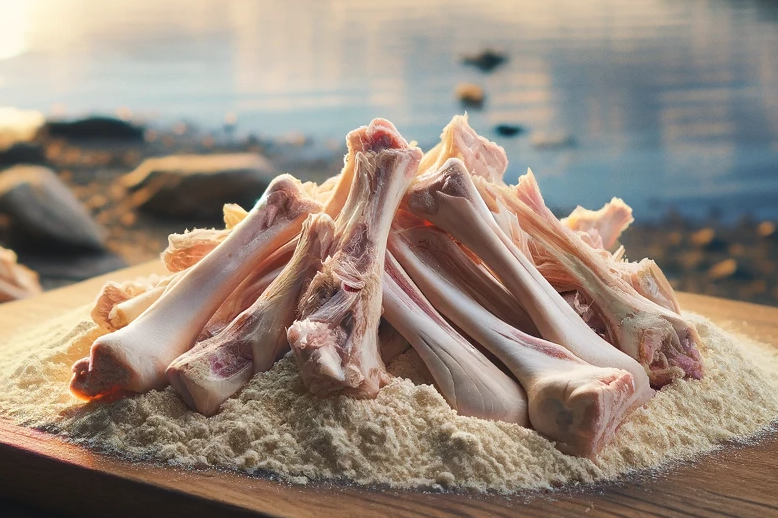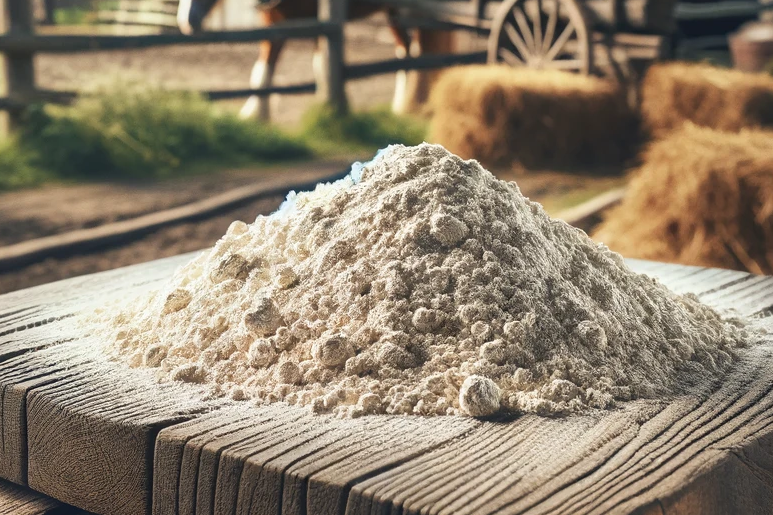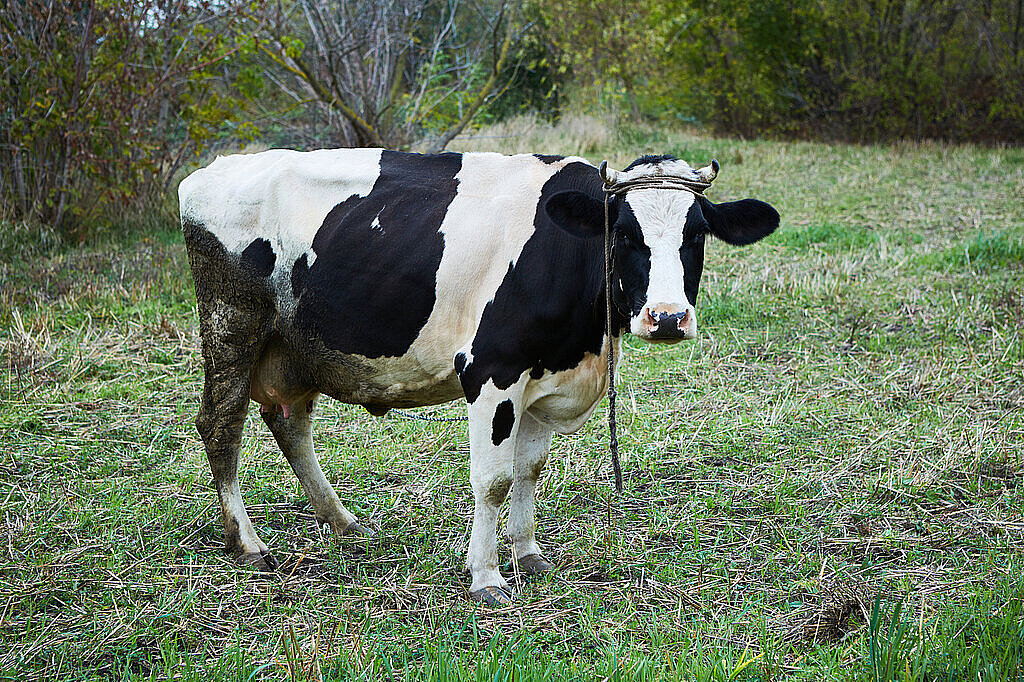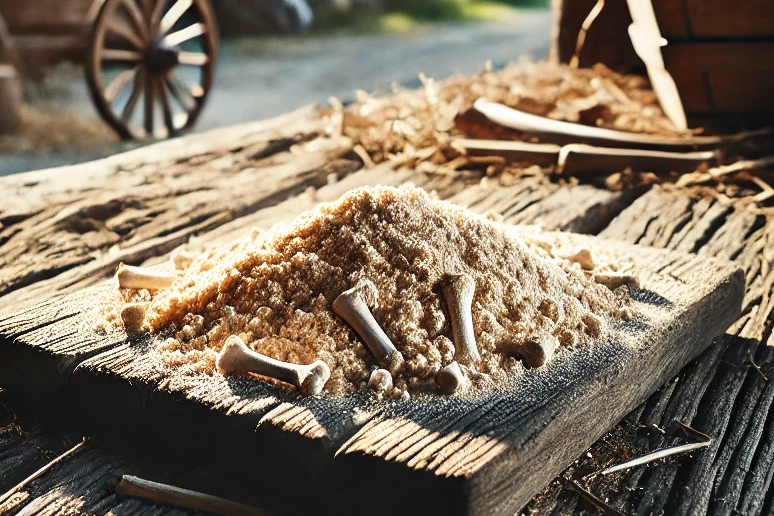Wild bone meal
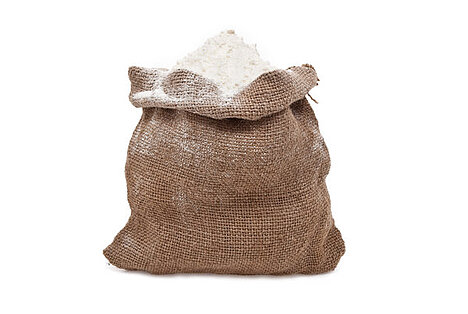
The advantages of wild bone meal
Wild bone meal has several advantages over other bone meals made from farmed animals such as cattle or pigs. Firstly, it is usually free from antibiotics, hormones or other harmful substances used in conventional animal husbandry. Secondly, it has a higher bioavailability, which means that the nutrients are better absorbed by the body. This is due to the fact that wild animals have a more natural diet and more exercise than farmed animals.
Wild bone meal can be particularly useful for dogs that are fed a grain-free or raw diet. This is because these diets can lead to a calcium deficiency if they are not balanced. Wild bone meal can compensate for this deficiency and ensure an optimal calcium-phosphorus ratio.
The disadvantages of wild bone meal
Wild bone meal is not without risks. Like any bone meal, it can lead to an oversupply of calcium if dosed too high. This can lead to kidney stones, bladder stones or other diseases. It can also lead to constipation or intestinal obstruction if the bones are not ground finely enough.
Wild bone meal can also contain bacteria such as salmonella or E. coli, which are not killed during processing. These can lead to diarrhea, vomiting or fever. Young, old or immunocompromised dogs are particularly at risk.
How to feed wild bone meal correctly?
If you want to feed your dog wild bone meal, there are a few points you should bear in mind:
- Only buy high-quality wild bone meal from trustworthy manufacturers or retailers. Make sure that the product is fresh and stored in a cool place.
- Only feed as much bone meal as your dog needs. The recommended amount depends on your dog's weight, age and activity level. As a rule of thumb: 1 teaspoon of wild bone meal per 10 kg of body weight per day.
- Mix the wild bone meal well into your dog's food. Avoid feeding the wild bone meal on its own or giving it as a treat.
- Observe your dog after feeding for possible signs of intolerance or overdosing.
Wild bone meal can be a useful addition to your dog's diet if you use it correctly. It can promote bone health and make the food more palatable. However, make sure you buy a high quality product and feed it in moderation.
If you notice any signs of hypersensitivity or poisoning in your dog, you should see your vet immediately. We are not a substitute for a vet, but we try to be as accurate as possible. Every dog reacts differently and we recommend you get a second opinion or consult your vet if in doubt.
Stay healthy and take good care of your four-legged friend!😊
Similar to Wild bone meal
Duck bone meal is made from the ground bones of ducks. This process usually involves drying and crushing the bones to produce a fine powder. The resulting product is rich in minerals and other...
Horse bone meal is made from the bones of horses, which are dried in a special process and ground into a fine powder. This meal is rich in minerals, especially calcium and phosphorus, which are...
Beef bone meal is a by-product of meat processing. It is made from beef bones, which are first boiled, degreased and sterilized. They are then crushed, ground and dried. The result is a fine powder...
Pork bone meal is a fine powder made by drying and grinding pork bones. This process removes fat and moisture and leaves a rich concentrate of minerals, especially calcium and phosphorus. Pork bone...
